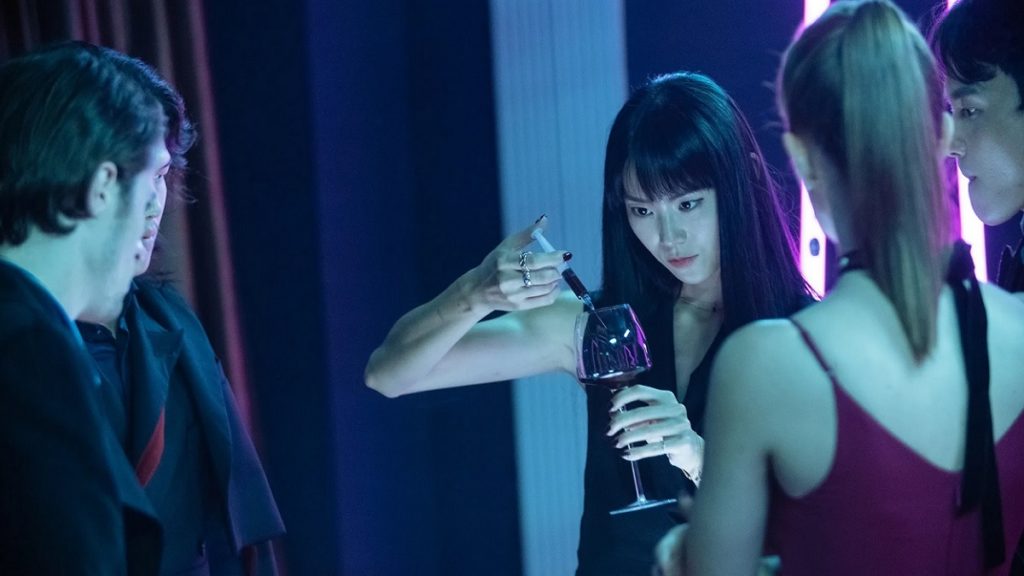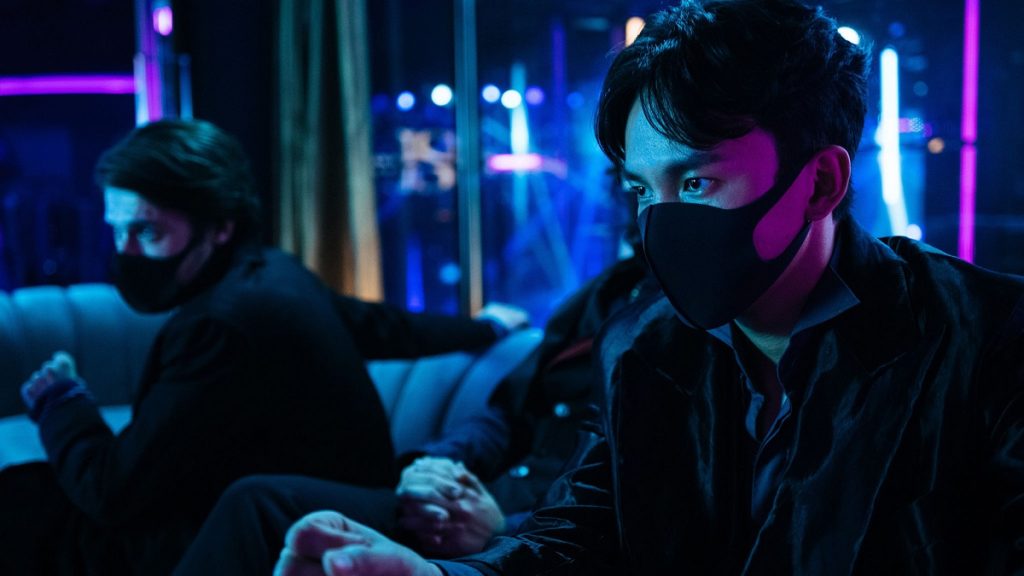Read also:
How to Watch FX Live Without CableHow To Watch AMC Without CableHow to Watch ABC Without CableHow to Watch Paramount Network Without CableThe new vampire drama is pretty to look at but lacks any blood in its veins.
The vampire has been a symbol of many things throughout history: pestilence, addiction, and even physical desire. But one of their most enduring symbolic roles is the aristocratic vampire as an allegory for the predatory wealthy. Writer/director David Verbeek adds to this rich history of parasitic oligarchs with his latest film, Dead & Beautiful. Unfortunately, this entry into the undead oeuvre lacks the bite needed to become an immortal classic.
The film follows a group of five young Taiwanese billionaires living and playing in Taipei. To stave off the boredom that apparently comes with their immense wealth, they take turns each week organizing exciting or offbeat excursions. One such event takes the group on a guided tour of the Taiwanese countryside, culminating with a strange ritual involving blood magic and some sort of psychotropic drugs that cause the group to pass out.
When they wake up, they find that they have fangs, and quickly conclude that they are now vampires. Taking refuge in one of their family’s unfinished hotels, the fledgling vampires must decide how they’re going to cope with their eternal life.
If you expect this premise to yield a story full of scares, prepare for disappointment. Not because Dead & Beautiful fails at being a horror movie, but because it simply isn’t one. Instead, it’s a drama that utilizes supernatural elements to ostensibly explore its characters.

I say “ostensibly” because Verbeek doesn’t seem particularly concerned with fleshing the characters out. Instead, each gets a one-note personality. Mason (Gijs Blom) is introspective, Bin-Ray (Philip Juan) is a prankster, Anastasia (Anna Marchenko) is a social media star, Alexander (Yen Tsao) is aggressive, and our main protagonist Lulu (Aviis Zhong) is serious and haunted by some dark event in her past.
Granted, it’s hard to give five characters stellar characterization in less than two hours. Still, I would have appreciated it if Dead & Beautiful had at least set up their backstories and relationships before their vampiric transformation. As it is, several second and third act conflicts predicated on jealousy and betrayals from the characters’ past seem to come out of nowhere with little to no setup.
This is especially egregious since the inciting incident that sets up the third act comes from Alex’s jealousy towards Mason and Lulu’s burgeoning relationship. Alex and Lulu’s romantic history remains unexplained. Are they dating? Just friends with benefits? And yet, we’re asked to invest in their connection as jealousy causes Alex to become the group’s primary aggressor.
[Dead & Beautiful’s] ennui may be thematically sound, but it still leads to a dull experience.
While the other four are content with just taking a little bit of blood from their victims, Alex desires to kill. His murderous tendencies cause a kerfuffle in the clique, but no one seems interested in doing anything about it. Even when Alex kidnaps a working-class woman to kill, the group seems unmotivated. They admonish him to let her go but don’t lift a finger to save her.
Similarly, throughout the movie, none of the characters have particularly strong motivations nor seem to face any real consequence for their actions. To be fair, their lack of motivation is mostly thematic. The characters of Dead & Beautiful are so jaded by their limitless options and lack of struggle that even the prospect of eternal life seems somewhat humdrum.
This ennui may be thematically sound, but it still leads to a dull experience. Mostly because Verbeek only goes half-ass with his class critique. It’s clear when each character’s introduction includes their family’s estimated fortune that Dead & Beautiful has something to say about the wealthy. Unfortunately, it seems to have forgotten to say it. We have a scene of the underclass calling the wealthy families “vampires”. We learn that Lulu resents her family’s ill-gotten riches. Then they grow fangs, and even these tiny signs of class conflict dissipate.

Indeed, the “rich as vampires” theme only really shows up in the final act. Even then, Verbeek’s thesis fails to go deeper than “wealthy people can be greedy, so young wealthy people need to act better.” No discussion on what acting better even means ever takes place. I don’t need every film about the one percent to have a debate about the ethics of gaining and controlling capital, but if you’re going to make it a central talking point of your movie, you need to give me a firm stance. This lack of a coherent point of view is, ultimately, what makes Dead & Beautiful fail.
While Dead & Beautiful is shallow, it’s at least pleasant to behold. Cinematographer Jasper Wolf has captured a gorgeous, neon-swathed portrait of Taipei. From outdoor dancehalls enrobed in pink and blue light, to the stark white lights of the airport, to a glitchy strobelike projector in a hotel conference room, the metropolis has a surreal atmosphere that heightens the supernatural elements.
The great visuals were enough to keep me engaged for the first hour or so. In the end, though, a movie just has to have more. What a shame that Dead & Beautiful purports to be six feet deep. Its story is more of a shallow grave.
Dead & Beautiful drinks blood in visually lovely ways beginning on November 4th on Shudder.